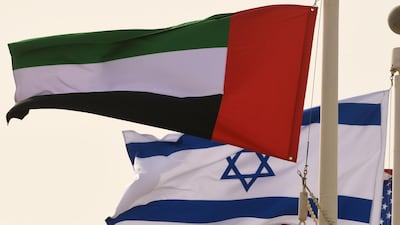Yesterday, the UAE and Israel signed the Abraham Accord, a historic agreement that signals the beginning of a new era for the Middle East. Sheikh Abdullah bin Zayed, Minister of Foreign Affairs and International Co-operation, met Israeli Prime Minister Benjamin Netanyahu at the White House and together they signed the first Arab-Israeli peace deal in more than 25 years. This was accompanied by the Bahraini Foreign Minister Dr Abdullatif Al-Zayani signing an agreement establishing ties with Israel.
Speaking at the signing ceremony, Sheikh Abdullah said the search for peace was an “innate principle” and that the accord represented the UAE and Israel extending and receiving the “hand of peace”. Underlining what was at stake, he said that “every option other than peace would signify destruction, poverty, and human suffering.” He also thanked Donald Trump and his team for their part in bringing the agreement into being.
Last month, the UAE announced that it would establish official diplomatic ties with Israel, in exchange for which, Israel would halt the annexation of Palestinian land. Prior to the agreement, Mr Netanyahu had pledged to annex large parts of the West Bank. Any move to do so would have effectively put an end to the two-state solution. Sheikh Abdullah reminded those gathered at the White House yesterday that “this Accord will enable us to continue to stand by the Palestinian people and realise their hopes for an independent state within a stable and prosperous region.”
The Palestinian-Israeli conflict has been deadlocked for decades. In the absence of a solution agreed upon by both parties, the UAE’s decision to maintain open communication with both sides could prove conducive for positive change. Aggression and escalation cannot end long-standing conflicts. It is now time to give diplomacy a chance. “We will be able to stand inside the tent of the Palestine issue and put pressure in favour of Palestinians,” Omar Ghobash, the UAE Assistant Minister for Cultural Affairs and Public Diplomacy, said on the eve of the signing.
Mr Ghobash, who was part of the UAE delegation present during the signing of the historic agreement, also believes that the deal is set to shatter age-old attitudes and bring the different cultures and religions of the Middle East closer together.
The Abraham Accord heralds an era of religious co-existence in a region mired in conflict. It will also bring new opportunities for co-operation between the UAE and Israel, in addition to boosting economic ties and trade. Both nations are eager to expand their areas of co-operation in the near future. Dr Anwar Gargash, UAE Minister of State for Foreign Affairs, said that the Emirates and Israel plan to develop official relations as soon as possible. “There is no reason why we cannot move faster and establish embassies and consulates very soon,” Dr Gargash told journalists ahead of the signing ceremony.
The Abraham Accord has already changed the face of diplomacy in the Middle East. And with the right will and actions can open doors towards peace, stability and prosperity.


